KAPLAN & GMAC ACCOUNTING FUNDAMENTALS COURSE
Start Strong In Business School With GMAC Accounting Fundamentals
Almost ready to start business school? With GMAC Accounting Fundamentals, you’ll level up your accounting knowledge before entering the classroom so that you can hit the ground running in your MBA or business master’s program.
Master the Basics of Business School Accounting
We’ll cover all of the accounting topics you need for business school, including:
- Accounting principles
- Balance sheets
- Income statements
- Statement of shareholders’ equity
- Accrual accounting
- Accounting process
- Journalizing transactions
- Preparing financial statements
- Statement of cash flows
Classes That Fit In Your Pocket
Built on the Canvas learning platform, each GMAC Accounting Fundamentals lesson is fully mobile-responsive and can be taken anytime, anywhere. Our business professors are in your pocket and available to teach you key accounting topics—on your schedule.
We'll Keep You On Track
Assignments help you practically apply your new skills and measure your progress by starting and ending each topic with a pre-test and post-test. Knowledge checks throughout the course test your understanding of the content as you go, and a final exam reviews everything you’ve learned.
What's Included
- Hours of self paced accounting fundamentals lessons
- Access on mobile, desktop, and tablet
- Expert lectures from real business school professors
- Quizzes and assessments throughout
- Lessons based on real-world business scenarios
- Ability to drill down and focus on the content you need
- 24/7 on demand access
Bundle Exclusive
STATISTICS, ACCOUNTING & FINANCE
Get all three courses for just $199 (a $297 value!) when you purchase them in a bundle—and be even better prepared to start business school.
What We'll Cover
Accounting Fundamentals: Course Overview
This course covers the purpose and process of analyzing financial statements, which help to tell the story and history of a business. By analyzing financial statements students will build literacy with the language of Accounting, learn the steps involved in Accounting recordkeeping, and determine the financial strength of a company. The course is comprised of self-paced lessons that were designed and delivered by experts. The combination of high-quality assessments, written material, rich media, and application-based practice builds students' skills in the field of Accounting.
Course Learning Outcomes
- Identify the four financial statements’ purpose and know how decision-makers use financial statements.
- List Accounting standards and principles’ role in providing relevant and useful financial information.
- Analyze the effect of Accounting transactions on financial statements using the Accounting equation.
- Apply revenue and expense recognition Accounting principles to explain the difference between cash and accrual Accounting.
- Apply debit and credit conventions to record Accounting transactions.
- Prepare financial statements by employing the Accounting process of journal entries, T-accounts, and trial balances.
- Identify the content, structure, and interrelationships of financial statements.
Topic #1: What Is Accounting and Why Do Business Leaders Need to Learn It?
We begin our exploration of Accounting by covering the basics. Students will learn how we define Accounting, how it informs key business decisions, and what the financial statements used by accountants are. We also include some optional coverage of who the standards setters of Accounting in the US are and what the ultimate objective of financial reporting is.
Topic #2: Business Activity Transaction Analysis
Our second topic focuses on transaction analysis, or an analysis of the business activities that impact financial statements. After demonstrating how to perform a transaction analysis and use it to prepare financial statements, we discuss the differences between accrual and cash-based Accounting in a transaction analysis context.
Topic #3: The Accounting Process Cycle
Topic 3 is all about the Accounting process and its cyclical nature. From the first step where you're analyzing a transaction analysis to the last where you're closing out accounts, we'll discuss the entire process and give you the opportunity to perform some of those steps yourself.
Topic #4: The Statement of Cash Flows
The final topic is a deep dive into the statement of cash flows, one of the four major financial statements. We cover what makes the statement of cash flows so important, how it relates to the other financial statements, and some of the different ways that information may be presented. The topic concludes with an opportunity for students to prepare a balance sheet themselves.
